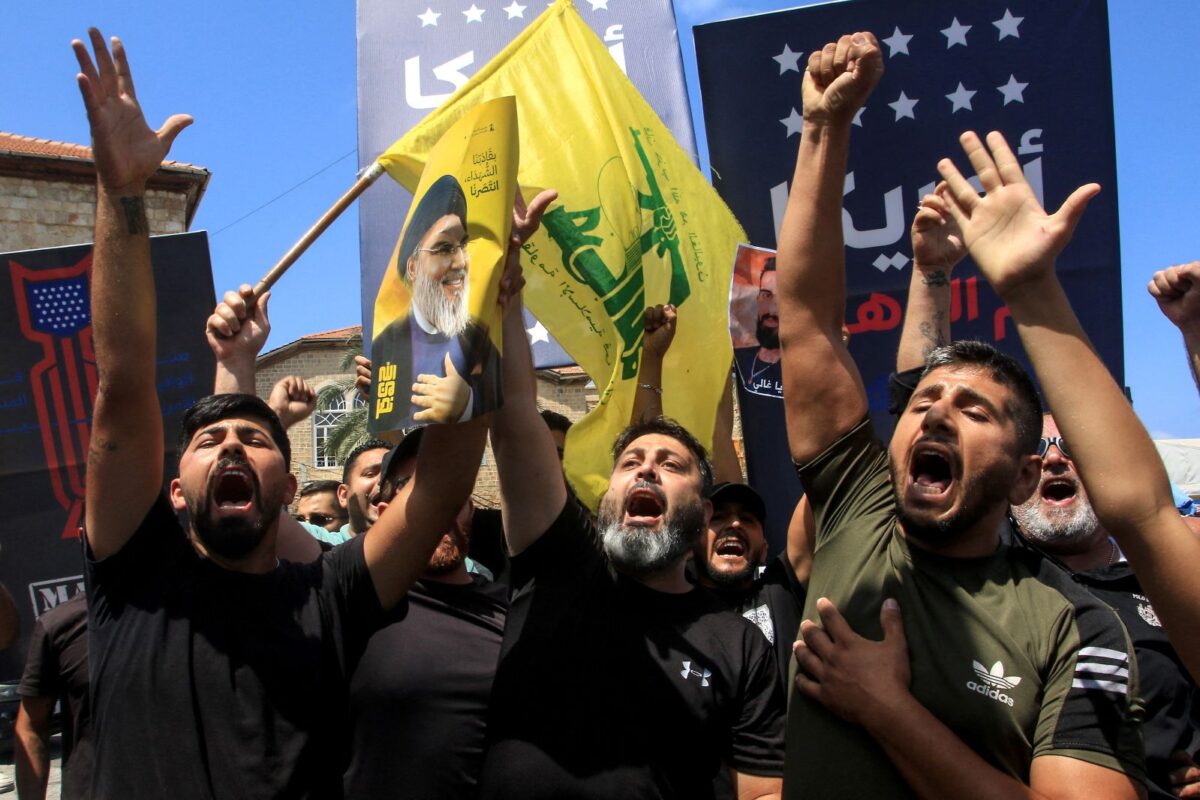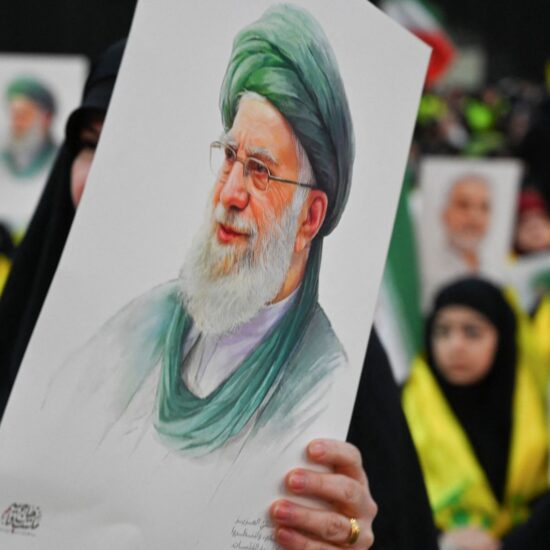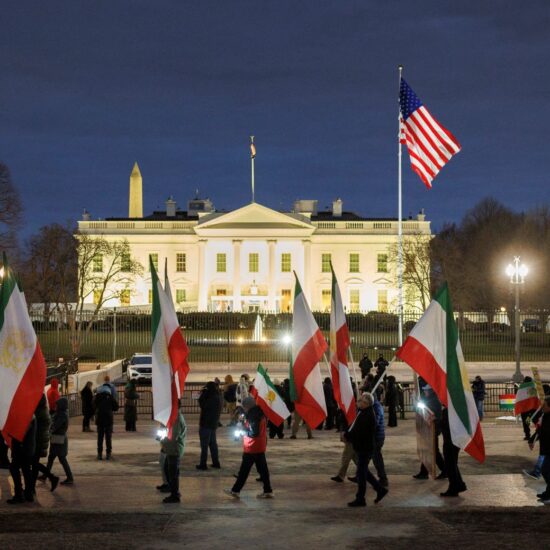
Hezbollah’s leader, Naim Qassem, recently delivered a lengthy somewhat mind-numbing speech about “restoring sovereignty,” as if Lebanese citizens had forgotten who first hollowed that sovereignty out. For more than thirty minutes, a man who commands weapons outside the state, bends governments to his will, and drags the country into ruin lectured the nation on how to reclaim the very statehood his party has seized. The contradiction would be comic if its consequences were not so grave.
Lebanon does not need elaborate roadmaps or rhetorical campaigns. It needs one step: for Hezbollah to stop confiscating the sovereignty of the state. Sovereignty is not recovered by “flooding” the government with proposals on social media, as Qassem urged, but by restoring to the Republic the exclusive authority over war and peace. That means ending the experiment of a militarized mini-state that rivals the state, and undoing the party’s long record of paralyzing parliament, violating the constitution, and building a shadow economy.
Qassem’s speech painted an idealized tableau of “resistance”—faith, honor, blood, sacrifice—while omitting an essential truth: long ago this “resistance” was subsumed into a regional project whose center of gravity lies in Tehran, not Beirut. The calendars and clocks that matter are set elsewhere. For many Lebanese, what is marketed as resistance now looks like dependency: borders and battle rhythms defined by external agendas; operations launched and paused on non-Lebanese timetables.
Consider Qassem’s justification that “resistance does not prevent aggression; it confronts it.” By this logic, Hezbollah claims a perpetual mandate to carry arms beyond state control, yet disavows responsibility for preventing the very escalations those arms invite. The boast that Israel has not invaded since 2006 is offered as proof of deterrence, when in fact the past decade has seen the party prioritize defending Bashar al-Assad’s regime in Syria, entanglement with militias from Yemen to Iraq, and the corrosion of Lebanon’s institutions and economy. The security dividend to ordinary Lebanese has been negative.
Most revealing was Qassem’s denunciation of the Lebanese government’s recent decision to strip all militias—his foremost among them—of their weapons, dismissing it as treason and an American diktat. In doing so he placed himself above the constitution, the cabinet, and any notion of national consensus. The Lebanese government decision of August 5 and 7 to disarm Iran’s militia should not be trivialized as a passing maneuver; it marked a watershed in the struggle over what Lebanon is. For the first time, the state formally signaled that the archaic slogan of “army, people, resistance” belongs to the past, and that the only road ahead runs through the institutions of the Republic alone.
No one should be naïve about timelines. Disarmament will not occur overnight, and the Lebanese Armed Forces cannot magically enforce it overnight. But symbols matter in politics, and so do legal positions. The contest with Hezbollah is not solely about rockets and drones—tools of yesterday’s wars. It is about the party’s more dangerous weapon: its capture of national decision-making and its binding of Lebanon’s fate to regional axes. That is why the real battle is constitutional and political. It exposes the fragility of Hezbollah’s claim to legitimacy and strips away the mystique that has shielded it for years.
There is another tell. The recent calls for a ceasefire did not come from the Lebanese state or the international community; they came from Hezbollah itself, confronted by the costs of attrition. That alone should puncture the myth of inexhaustible strength. The party’s arsenal, once sold as the guarantor of dignity, has become a political liability that isolates it domestically.
This is not about resistance versus surrender, nor about abstract debates over liberation. It is about who holds the keys to the state. When a non-state actor wields more firepower than the national army and treats that arsenal as a bargaining chip in foreign capitals, it forfeits the right to lecture Lebanese citizens on patriotism or sovereignty.
Sovereignty is not a one-week campaign, as Qassem glibly proposed. It is a daily practice: free decision-making; a single, lawful chain of command; a judiciary that cannot be intimidated; borders that are neither suggestion nor smuggling lane. Lebanon does not need a “Facebook drive.” It needs to end the duality of arms, restore the rule of law, secure its frontiers—especially with Syria—and re-anchor its economy in legality rather than contraband.
That a man who has helped strip Lebanon of its sovereignty now presumes to define it is the very definition of farce. A party that has conducted foreign policy from Damascus to Sanaa, forged alliances in Tehran and Baghdad, and defied the international community is the last actor qualified to distribute certificates of national virtue.
Qassem’s speech, perhaps unwittingly, revealed something important: Hezbollah is losing the argument at home. Instead of a convincing rationale for its weapons, it offers Cold War-era slogans—resistance, pride, sacrifice—while Lebanese citizens ask for one thing only: a functioning state. They want those weapons brought under legitimate authority so they can live in a country where no party towers over the public.
In short, those who usurped sovereignty cannot teach it. And those who refuse to join the project of statehood will never grasp the meaning of a nation. Until Hezbollah accepts the primacy of the Republic and submits its arsenal to the law, it remains what it has become: an obstacle to Lebanon’s sovereignty, not its guardian.
This article originally appeared in Nidaa al-Watan
Makram Rabah is the managing editor at Now Lebanon and an Assistant Professor at the American University of Beirut, Department of History. His book Conflict on Mount Lebanon: The Druze, the Maronites and Collective Memory (Edinburgh University Press) covers collective identities and the Lebanese Civil War. He tweets at @makramrabah







